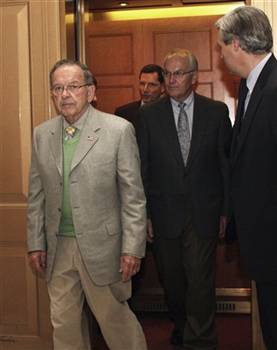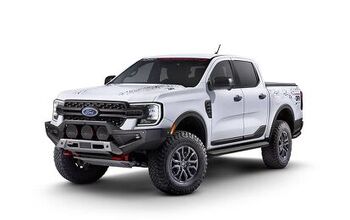Bailout Watch 70: Senate Funds $25b Motown Loans
Congressional funding for the Department of Energy’s (DOE) $25b low-interest loans, designed to help Detroit retool 20-year-old (or older) factories to produce fuel-efficient automobiles, has just cleared the Senate. MSNBC reports that the $634b spending bill (which includes the provision) is now heading for President Bush’s signature, after passing the Senate by a margin of 72 to 12. Detroit’s lobbyists’ have little time or reason to rest or celebrate. The moribund new car market is feeding the flames of their cash conflagration right here, right now. The DOE’s “normal” timetable wouldn’t put the money in their mitts until 2010. Too late. As The Detroit News points out, presidential aspirant John McCain feels their pain. “McCain spokeswoman Sarah Lenti said the Arizona senator ‘is committed to a responsive and efficient government. In circumstances in which it is straightforward to anticipate the startup of a new program, he would insist that work would begin in advance and be completed in a timely fashion.'” Wiggle much? Only as much as Barack Obama. “After the progress of the past week this is disappointing news from the Department of Energy,” Obama spokesman Brad Carroll said. “Barack Obama understands that these loans are essential for keeping auto jobs here in America, which is why he would do everything possible as president to expedite this process.”
More by Robert Farago


































Comments
Join the conversation
The real power in Iran is Ali Khamenei. Ahmadinejad is president and merely executes policies set by Ali Khamenei. But we've got a convenient demon we can focus on as the problem instead of dealing with reality.